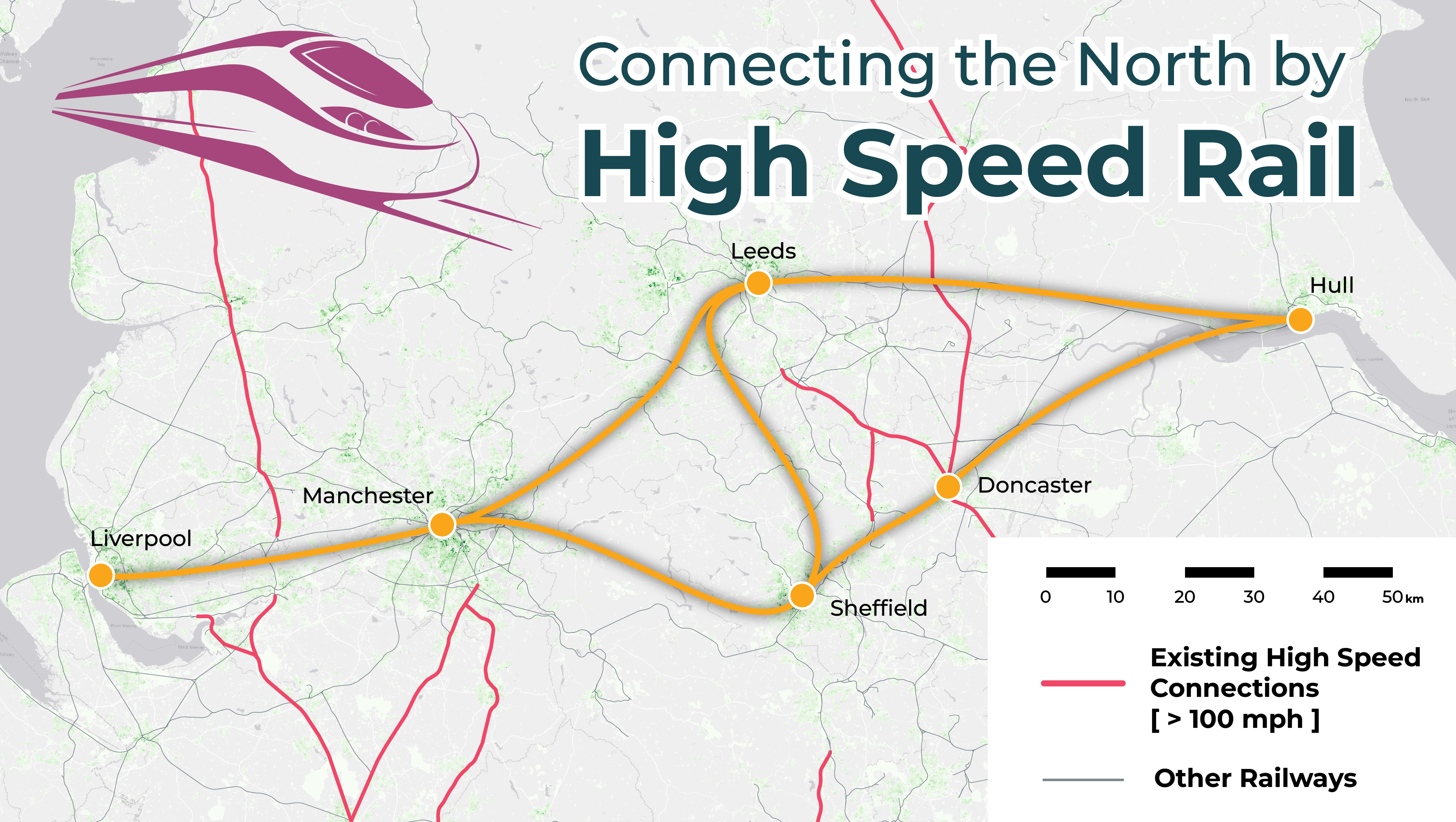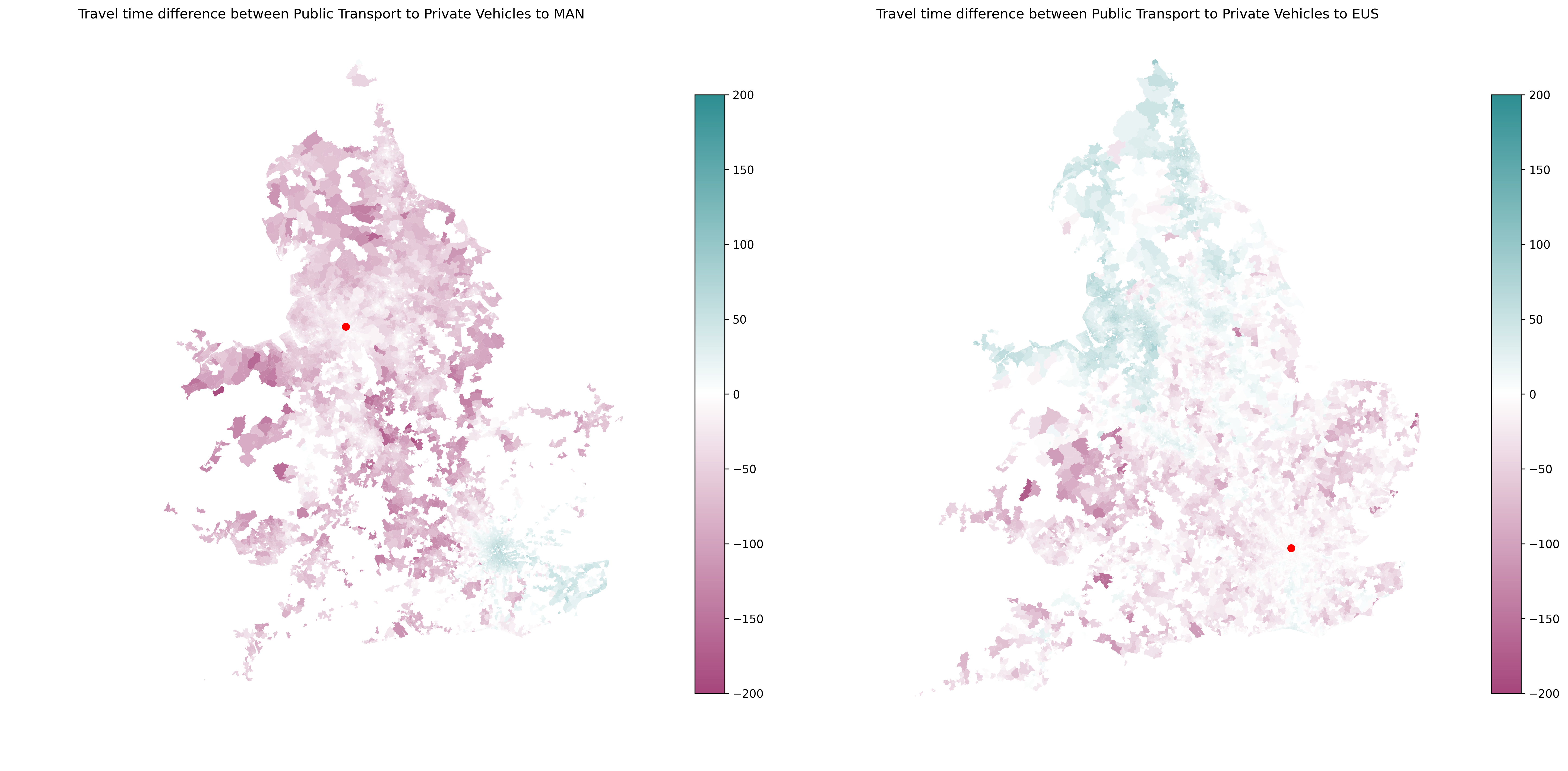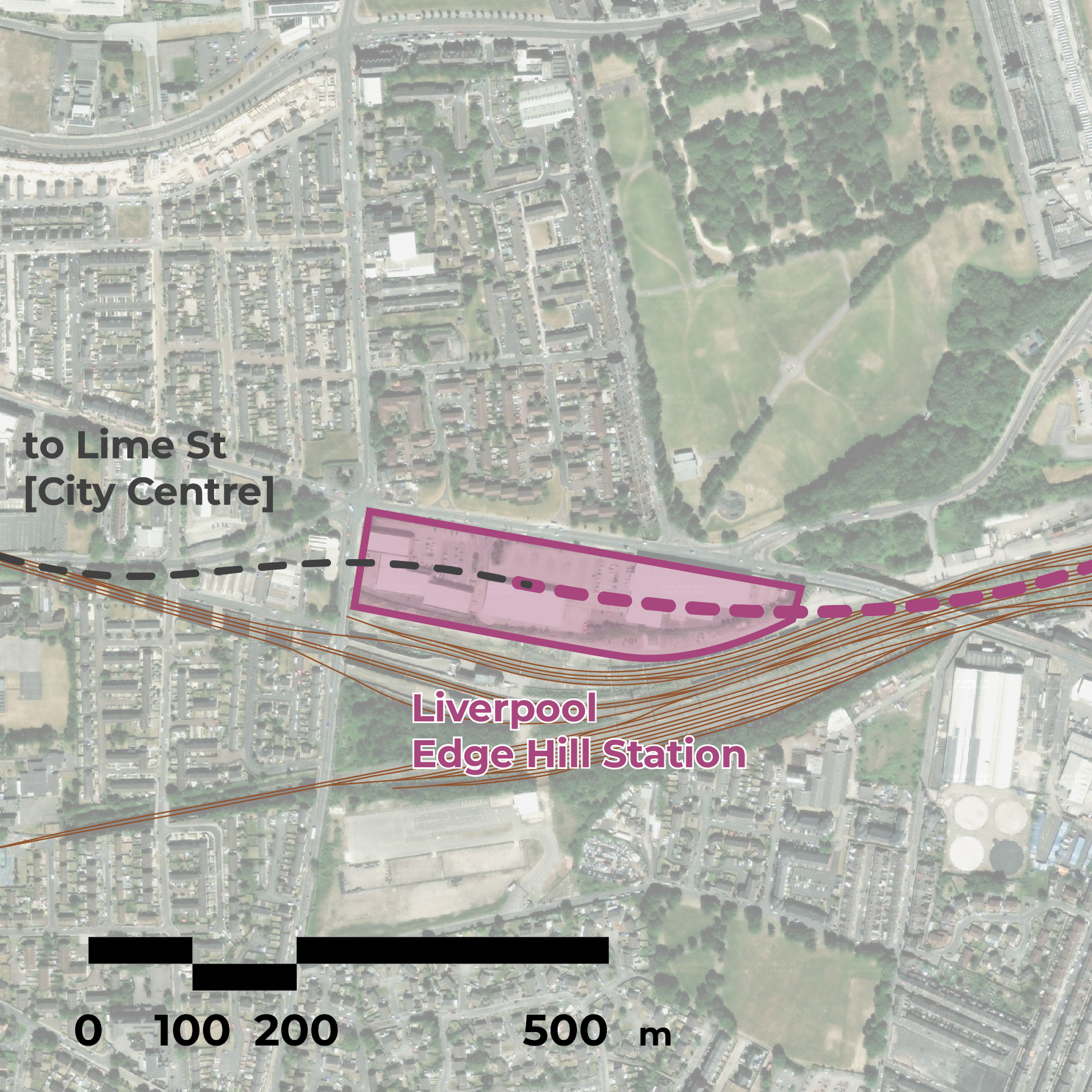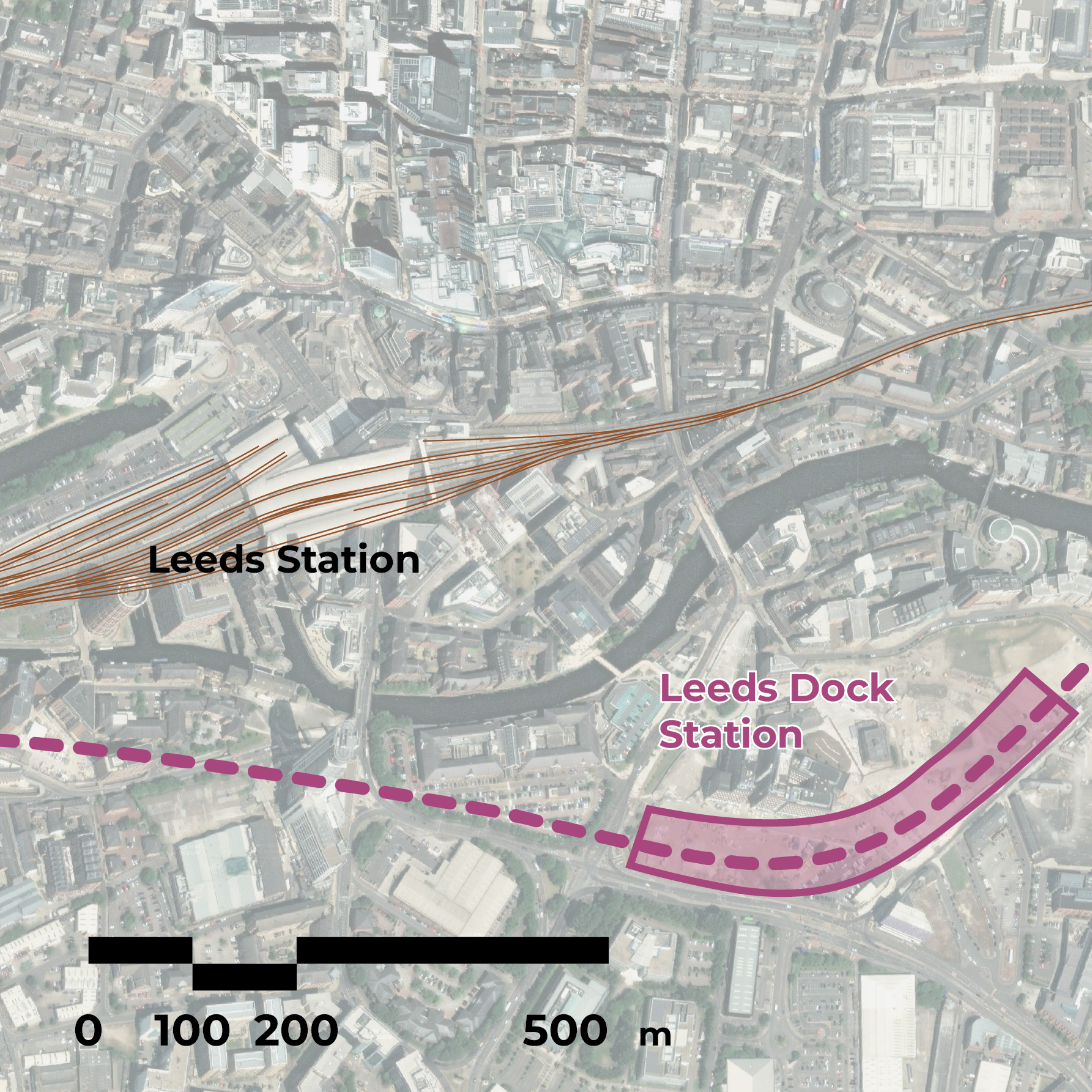Trackside North

Overview
The Data & Design Hackathon was held at the University of Sheffield that brings together students from diverse backgrounds to solve real-world problems using data-driven approaches and creative design thinking. Our project focused on evaluating the potential impact of a proposed high-speed railway network in North England, combining spatial analysis and deep-dive into the individual context of potential station sites to assess the impact of the large infrastructure project.
The Data: Spatial Analysis
The current transport network in the North of England was analysed using a range of spatial datasets, including public transport accessibility, share of travel, and travel time. Various indeces show the inadequate public transport provision in the North. We have predicted the growth of public transport usage when times become more competent.

The Design: Site Selection
We have identified potential sites the high-speed stations could be placed through a closer examination of the urban fabric. Utilization of brownfield sites have been our strategy whilst considering accessibility with existing intra-city public transport modes.


Collaborators
This project is the work of team Trackside North at the University of Sheffield. Team members:
- Richard Beaumont
- Abduweli Mijit
- Soki Kimura
- Tobi Olsogba
- Nada Katamish
Contribution from Will Deakin from Network Rail.